Baseball Coaching Questions & Answers
Tryouts and what to look for August 16 2017, 200 Comments
Parents, as your boy or girl gets better and progresses into the sport of baseball and/or softball they're going to be faced with tryouts. Where a coach or set of coaches trying to determine if he or she can play on their team regardless of whether it's elite travel or just regular league many times were faced with the try out. If the tryouts are well-run you should be able to see comparisons between your player and the other players and how they can hit, run, throw, field, and at times how well they understand the game through situations.
All tryouts try to create measurable's so that they can validate their choices both to themselves and the parents. Many times parents don't see, in fact most always, their child/player in the same light as the coaches that are doing the evaluation. By measurable's we mean something that the player can do that we can physically and mathematically major.
Typically these are: running speed how fast over the distance from home plate to second base, arm speed how fast does he throw the ball from the pitcher's mound and from the shortstop position to first base -- this is measured with radar almost always. On the batting aspects New technology is allowing for a measurable on the bat speed, bat angle, exit speed of the ball off the bat all these things are done using a machine or a batting T so that little or no difference between one boy/girl to the other.. Something we always try to avoid is the human element in a tryout,
you should note as a parent or try out administrator that there needs to be opinion place for somebody that knows the game and knows athletes to be able to comment on athletic ability, quickness, correctness of throwing motion, correctness of hitting technique,, awareness of the situations when placed into the field or at the bat and a situation is simulated.
But that human element does enter into when we determine if the player has a good attitude, hustle, pays attention, will be a good team player and that the parents and the player understood what they're trying out for and most the time with the costs going to be both in time and in money.
All these are things that you as a parent and as a coach trying out need to consider, this article is a long ways from inclusive but I would hope it gives you some thoughts of what you're going to be faced with or what you have to do in tryouts.
Coach Arnald Swift
Practice and Baserunning June 18 2017, 0 Comments
Baseball tip Some Coaches Notes On BaserunningI wish I knew why so little time is spent on baserunning in practice.
Maybe there’s just so much to do coaches are less comfortable with their knowledge, and as I said, I don’t know.
But what if it were true that you could actually steal a few extra victories in a season? Would you feel it was important enough to rethink it? I hope, yes. But where would you start...and how would you implement it?
Some quick thoughts:
Decide how much time you would dedicate, then DO IT. Now they can get better, quicker and it becomes a habit for the entire team.,Explain to the team about a new weapon they will be using: baserunning! Let players know that all players can help, not just Johnny Fast-Guy. Be prepared for your 2nd practice drills to go 20-30% better than the 1st! Be prepared to get excited (as will your players) as this happens.
Make it a part of your practice routine. You’ll even come up with more ideas that I PROMISE you’ll “get” as your interest peaks!.
Thoughts on each base:
2nd Base
Second base is called scoring position for a reason.
It takes one hit to score most runners from here...and has the added bonus of eliminating the force or double play and pressures the defense and your opposing coaches further.
3rd Base
There are 9 different ways to score from 3rd base! Can you name them?
Wow! You just have to attack this base and get yourself there. It puts so much pressure on opposing coaches, pitchers, catchers and infielders that you could steal an extra game or three over the course of a season!
How Much is to Much December 28 2016, 0 Comments
I would like to say a few words about young players or even older players concentrating on the single sport to early in life. This is going on because my grandson all of a sudden is decided he didn't want to play basketball this year that he only want to play baseball. I was in particularly in favor but he is 10 years old and he's going to change his mind more than once that's a guarantee. What's happened on a practical level is that there is no baseball for him to concentrate on so the only thing he's doing is going to the cage once in a while it hitting with that's not really practice. But more importantly I think it's a matter he's not getting the life experiences that he would enjoy playing all the games with all his friends. I encourage parents to really get their kids to try many different things. Sports aren't any different than food, entertainment, academic interests, arts and science, all that kind of thing. I don't think there's a parent out there that doesn't hate when their kid just sits in front of the TV or in front of the videogame. But I really don't see that much difference between those two activities only doing one sport during the developmental years.
I'll even add a second story of a young man I know in California that only play baseball up until the time you said during his freshman class, 2016, at that point he decided he didn't like being left out social circle so he was going to play football. As it turned out he was relatively good enjoyed it and says he's going to do it again, now he's playing freshman basketball again doing very well, and then in the spring he will play baseball. The real point of this is that he tried to stay with baseball only up until the time he was 14 years old all of a sudden he decided that he would like to try these other things, you did and he's turned out to be good at it and enjoying all the benefits. Therefore I think the take away would be it's never too late to start doing other things.
If we as parents, grandparents think they were going to build an athlete it's going to get college scholarships, pro sports, or in any way have sports be part of his life from a financial side then were fooling ourselves. The mathematical odds of these things happening are extraordinarily high and then the truth is we spend more money trying to get this accomplished that we never spend on the scholarships if we didn't have the sports. Sports and competition are for enjoyment in the real benefit comes from playing the sport, being part of a group, and having your family be with you while you're doing it.
I wrote this both from first-hand experience with my boys, my grandkids, and what I believed as a coach for over 40 years. What are your thoughts?
Covering Bases When Runners Steal February 21 2016, 0 Comments
Dear CoachI coach baseball at the 13-15 Babe Ruth level. We work hard with our pitchers holding runners on to avoid giving up really easy stolen bases. At this point, I think our pitchers are doing well at this task. I have a question or two about the second baseman and shortstop and their jobs of helping hold runners on at second base. I feel if we are going to give up a steal of third base, the runner that steals should at least be held on 2B properly before he earns that stolen base on us.
1) Are there different responsibilities for the two positions in regards to holding the runner at 2B vs. a left handed or right handed batter?
2) What should the footwork for the short stop and second baseman involve?
3) Should they be saying anything, tapping their gloves, or etc.?
Thanks for any tips you can offer me in regards to answering my questions.
Dear Kelly
You have this pretty well in hand and I answer that because of your suggestions and thoughts. The decision on who holes a runner at second with distractions, playing close to him, are all dependent upon the batter and where he's most likely at the ball. The general answer is whether he's left or right handed but there certainly can be exceptions as you get to know your opponents. There are several ways simply bluffing, going always a bag, living in front of the runner and backing away, moving up directly behind the runner so he knows you're there. All these things have to be done in synchronization with your pitcher so that you don't get caught out of place. Now your pitcher can help you with bluffs every once in a while, second and third looks (very is looks at the runner), pickoff plays even when there not successful which is second are pretty rare but they keep a record closer. But you are right you got to do a combination of things and you need to make sure a runner knows you're there otherwise he'll become very comfortable and get an extra step or two when the balls hit, we wants to steal, distracting your pitcher, so is a variation of what I've said and above what you said.
Coach Arnald Swift
Playing Time Question November 17 2015, 0 Comments
My name is Trevor, and I have been catching for 7 years. Over the summer, I made sure to study all the footwork of a catcher and everything I could think of. I am currently a freshman in high school playing in open off season to prepare for tryouts in February. I keep telling my coach that I know how to catch, but he won't let me catch at practices or in our scrimmage games. Instead he puts in me in the outfield and plays everyone that he knows in the infield. What can I say or do to make him let me catch? I know I am a good catcher, but every time he asks for catchers, he ignores me, or says that I can catch in a game and forgets I am a catcher. What do I do?
Trevor: Yours is an interesting question, because it has several elements in it that are inferred and are direct questions. Let's handle the direct question: if you have worked that hard catcher for seven years then you really should be pretty decent, but never to get a chance to catch is a little odd. You indicate that you'd be willing to catch batting practice, or even just in practice I would certainly encourage you to go directly the coach and say your willing to catch BP or in the bullpen just so show that I can do it. Would you please give me that opportunity. When you ask it directly like that then he will be forced to give you a direct answer and no coach the world pass up a catcher wanting to work in those two jobs. Now you infer that you tried to and tried to catch and your coach put you out in the outfield with the vague promises he will catch you in a game. Something is wrong there no coach would put the player into the game as a catcher without have watching him go through practice, drills, and all the things of the catcher is required to do. Second question comes about how well are you in the outfield are you more valuable out there defensively along with your hitting skills. As a coach I have to make that decision. Then the other question that you didn't ask but a coach has to decide how good are the players in front of you, as much as you want to work at it has much you have worked at it are you still not as good in all the skills in a catcher takes.
I'm a long ways from saying don't continue to work because your letter indicates that you're willing to work, do all the hard jobs to show you can catch and then in turn try to get into the games as a catcher and you must just continue down that road. But be honest with yourself when you look at how you helped the team the best and maybe the coach is looking at it from that direction not just what you would like to do. Hang in there and continue to work at catching but at the same time to your job when you're playing the game at all those other elements that are involved.
Best of luck let me know how it turns out.
Coach Arnald Swift
Outfield Throw and Cut July 13 2015, 0 Comments
CoachI coach a 5th grade team and a 7th grade team. My assistant coach on the 7th grade team has instructed the boys to “see the throw” before yelling “cut or no cut”. This really has confused the boys on what they should do. Should we do this at these age levels?
Jeff
I think that is normal for the throw from the outfield. The words and coaching may be a little different but what I believe is he is asking the control guy to do is wait until he see the throw to tell if it is on line, has a chance to make the put out and at what base. The control player can't not say cut, hold, cut to ? until he sees the throw.
So the works "see the throw" is telling him to wait and look at the throw and make the decision of where to go with the throw.
It strikes me as decent point, with different words.
Coach Arnald Swift.
Youth Player and Bat Question March 25 2015, 0 Comments
Hello Coach
My son is starting little league (after a few years of T-ball) and I am racking my brain during his first year struggles -- which have been hard on him. He's always held a hockey stick left-handed (as I played lefty too), so I had him in T-ball hold the bat/hit left-handed too and did pretty well hitting this way (a good, contact hitter). But unfortunately, he looks woefully over matched hitting lefty in little league. Admittedly, he's a smallish boy, but it seems he has very little bat control. Obviously he's not hitting the pitching machine at all. Since I played ice hockey as a lefty, but played baseball batting righty, I'm wondering if I have him hitting from his wrong side? I've toyed with him trying righty, but since he's never hit that way, he worse off. I just fell like I may have made a mistake and could be doing him a disservice but now I'm not sure what to do? Any thoughts you have on this I'd love to know and would appreciated it greatly. He's incredibly discouraged and I fear he may give up due to all his failures. Thanks...
Dear Dad
I don't think you've done a disservice to your son, is just a matter of maturity and if he's used to playing hockey left-handed then leaving as a left-handed batter and he will learn. I would look first and foremost at equipment I'm not normally a big fan of blaming the equipment but as I've coached my own grandsons T-ball team and coach pitch I found that they have to have a bat that they can control so make sure you have the right length but more importantly the lightweight so that he can control it during the swing. Then you will help him a great deal if you will work with him on soft toss drills, tee work, and easy underhand pitching so that he can swing and make contact and developed a good swing. It's my advice for you to use plastic balls during this time that way you don't chase them and he will not get you hurt by hitting them back up the middle.
Coach Arnald Swift
Coaching Younger Players March 21 2015, 0 Comments
I am coaching a lower division t-ball team that consists of 4 and 5 yr. olds, and one 6 yr. old. Most of the teams consist of 9 players. The league has decided that since my team has 11 players, they have placed us in the upper division. The ages in the upper division are 5 and 6.
You would think it would make us better, but it has made it harder to get them motivated. Some have never played before. We can’t change the team set-up now, so do you have any helpful pointers? Thanks!Gerald
Gerald,
I guess I don't truly understand your problem because if you're telling me that you're playing up in the upper division because you have 11 players, not because of the ability then you have one of the dumbest rules and league I ever heard of that doesn't really make any sense. If what you're telling me that you have one or two players that force you up and that upper division because of their age, then that's another story.
I know exactly what you're talking about as far as playing with five and six year olds. Because I'm coaching a team exactly like that with my grandson and my granddaughter and we have to play in a coach pitch 8 and under league. The biggest deal here is that you don't worry and you make a huge deal out of the score not being important. What is important is each accomplishment is what you celebrate and just like hitting the ball and running or picking it up and throwing. Your letter indicates that your worrying about motivation, when in truth just playing to be all the motivation they need not sure hundred percent what you mean by motivation. But little kids like that normally just love to play, let them play in different positions and set goals that you know they're going to accomplish. Just like this past Sunday we had three goals--- for six out of the 12 players to hit the ball, to make one out in the field, and scored one run and we were able to do that because of the way the league is built - inning consists of three outs, seven runs, or batting through the order when we change. We know that were going to accomplish almost every one of these and this week we will have a little different set of goals, but that's what were you tell them are going to try to do and have fun. Then after the game we will make comment immediately away from the parents. So is just you and the coaches and the players talking to each other about what you got accomplished today and how much fun it was. Make no mistake about it all you're doing is creating organized play with this age group you're not creating baseball players you're creating social skills, fun, and organizational aspects that they will need to work with. But winning and losing is the last thing that needs to be even brought up.
The very first year I coached we were eight year olds in a 10 under league we were 0-44, and the thing they remember to this very day is that we went to Pizza Hut and celebrated a rain out. But by the time they were 12 years old we were 2nd in the BABE RUTH WORLD SERIES for 12 and under.
Let me know what you think and hope that I've created some thought process.
Coach Arnald Swift










